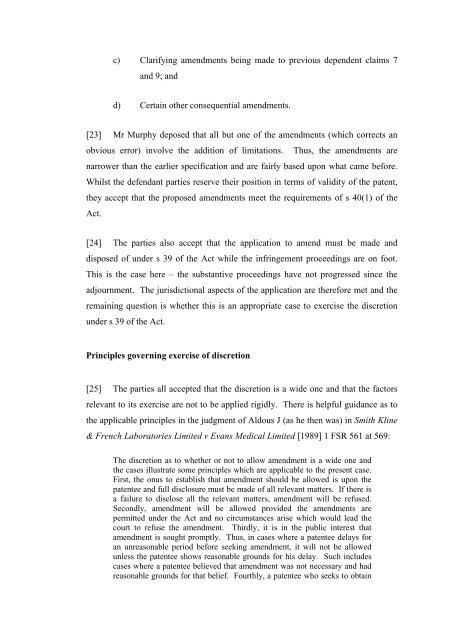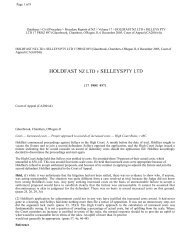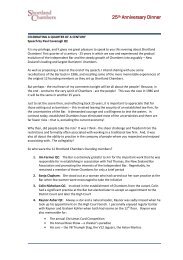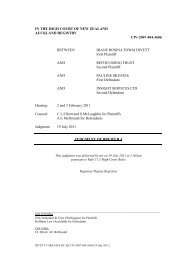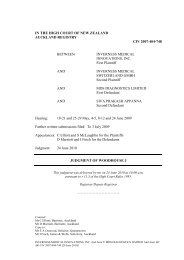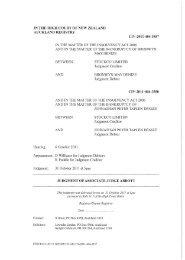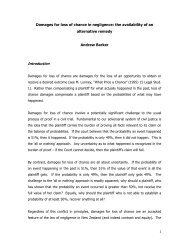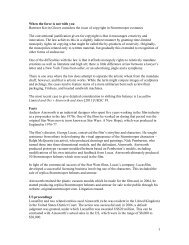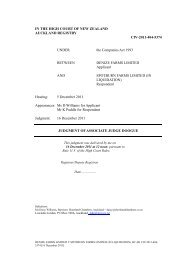Peter Ward v Genesis Equipment - Shortland Chambers
Peter Ward v Genesis Equipment - Shortland Chambers
Peter Ward v Genesis Equipment - Shortland Chambers
You also want an ePaper? Increase the reach of your titles
YUMPU automatically turns print PDFs into web optimized ePapers that Google loves.
c) Clarifying amendments being made to previous dependent claims 7<br />
and 9; and<br />
d) Certain other consequential amendments.<br />
[23] Mr Murphy deposed that all but one of the amendments (which corrects an<br />
obvious error) involve the addition of limitations. Thus, the amendments are<br />
narrower than the earlier specification and are fairly based upon what came before.<br />
Whilst the defendant parties reserve their position in terms of validity of the patent,<br />
they accept that the proposed amendments meet the requirements of s 40(1) of the<br />
Act.<br />
[24] The parties also accept that the application to amend must be made and<br />
disposed of under s 39 of the Act while the infringement proceedings are on foot.<br />
This is the case here – the substantive proceedings have not progressed since the<br />
adjournment. The jurisdictional aspects of the application are therefore met and the<br />
remaining question is whether this is an appropriate case to exercise the discretion<br />
under s 39 of the Act.<br />
Principles governing exercise of discretion<br />
[25] The parties all accepted that the discretion is a wide one and that the factors<br />
relevant to its exercise are not to be applied rigidly. There is helpful guidance as to<br />
the applicable principles in the judgment of Aldous J (as he then was) in Smith Kline<br />
& French Laboratories Limited v Evans Medical Limited [1989] 1 FSR 561 at 569:<br />
The discretion as to whether or not to allow amendment is a wide one and<br />
the cases illustrate some principles which are applicable to the present case.<br />
First, the onus to establish that amendment should be allowed is upon the<br />
patentee and full disclosure must be made of all relevant matters. If there is<br />
a failure to disclose all the relevant matters, amendment will be refused.<br />
Secondly, amendment will be allowed provided the amendments are<br />
permitted under the Act and no circumstances arise which would lead the<br />
court to refuse the amendment. Thirdly, it is in the public interest that<br />
amendment is sought promptly. Thus, in cases where a patentee delays for<br />
an unreasonable period before seeking amendment, it will not be allowed<br />
unless the patentee shows reasonable grounds for his delay. Such includes<br />
cases where a patentee believed that amendment was not necessary and had<br />
reasonable grounds for that belief. Fourthly, a patentee who seeks to obtain


